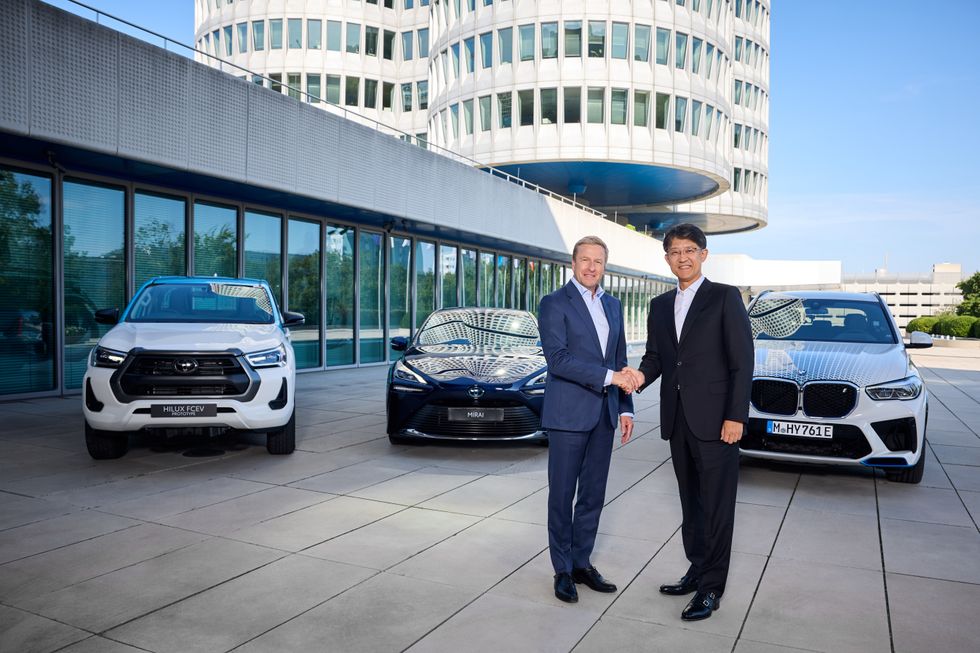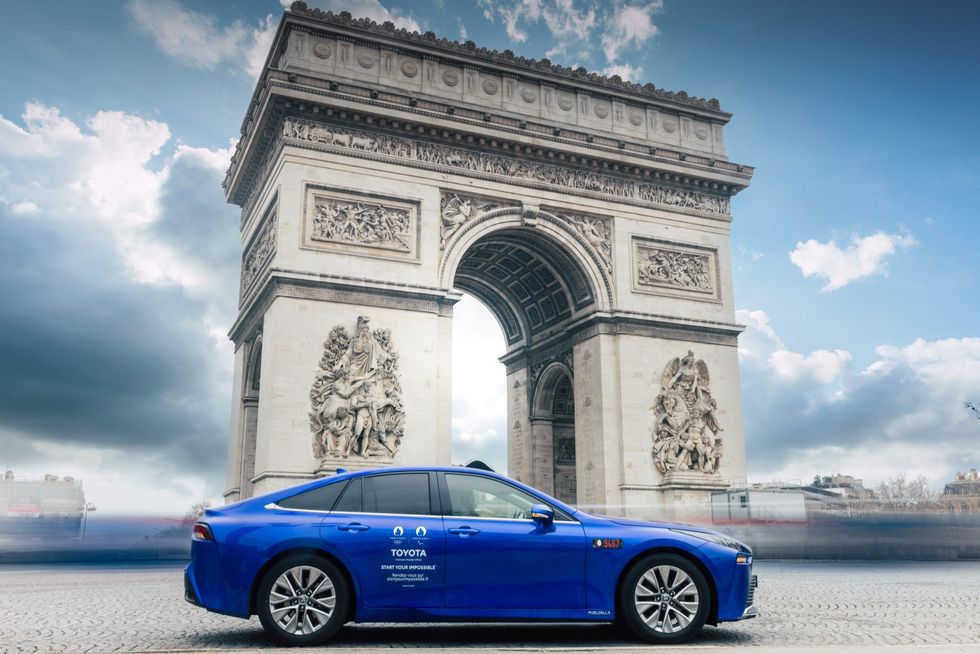BMW to launch hydrogen fuel cell vehicle by 2028 alongside Toyota - 'Milestone in automotive history'
Koji Sato, President of Toyota, and BMW Chairman Oliver Zipse backed the use hydrogen vehicles
BMW and Toyota have called on governments to boost support for hydrogen vehicles
Don't Miss
Most Read
Trending on GB News
BMW has announced plans to launch its first hydrogen-powered vehicle by 2028, as part of a new collaboration with Toyota to develop fuel cell technology and get more hydrogen vehicles on the market.
The new vehicle will be based on an existing BMW model, retrofitted with hydrogen fuel cell technology, although details on price and production volume remain unknown.
The company expects the hydrogen charging infrastructure to have developed significantly by the launch date.
Oliver Zipse, BMW's CEO, hailed the announcement, stating: "This is a milestone in automotive history. Powered by hydrogen and driven by the spirit of our cooperation, it will underscore how technological progress is shaping future mobility."
Do you have a story you'd like to share? Get in touch by emailingmotoring@gbnews.uk

BMW is aiming to launch its first-ever series production fuel cell vehicle in 2028
BMW GROUP
BMW has already tested the iX5 Hydrogen prototype, which boasts a range of 500km (310 miles) and can refuel in between three and four minutes.
Both BMW and Toyota aim to reduce costs and develop passenger car drive units with potential applications for commercial vehicles.
This collaboration builds on over a decade of successful partnership between the two automotive giants, with both sharing a vision of advancing the hydrogen economy alongside battery electric technology.
BMW's planned hydrogen vehicle is expected to be offered alongside its electric vehicle models, many of which are already popular on the UK market.
Koji Sato, Toyota's president, emphasised the shared vision: "BMW and Toyota share the same passion for cars and belief in technology openness and a multi-pathway approach to carbon neutrality."
BMW assures that despite sharing technology, their hydrogen vehicle will maintain the brand's "distinct identity and characteristics".
Toyota has been a pioneer in hydrogen fuel cell vehicles, introducing the Mirai to the UK market in 2015, while the latest model offers an impressive range of 406 miles.
Despite the optimism around hydrogen vehicles, adoption of them has been slow, with fears around refuelling infrastructure, the price of the vehicles and a lack of understanding.
BMW and Toyota are actively supporting the expansion of both hydrogen refuelling and battery electric vehicle charging infrastructure by working closely with companies developing low-carbon hydrogen production, distribution, and refuelling facilities.
The carmakers are also advocating for government support to facilitate the early-stage penetration of hydrogen mobility and ensure its economic viability.
Despite these challenges, manufacturers continue to invest in hydrogen technology, believing in its potential to complement battery electric vehicles.
Stellantis has described itself as a "front-runner in hydrogen technology" with plans to increase its production capacity for mid-size vans and extend this technology to large vans in 2024 with the first US offering in 2025.
LATEST DEVELOPMENTS:

The Toyota Mirai is one of the most popular hydrogen vehicles on the market
TOYOTAThe UK Government has recently provided an £8million grant to British startup Element 2, to build four public hydrogen stations and boost trust in the related infrastructure.
The European Union has announced plans to accelerate its network of hydrogen filling stations, aiming to have one every 200km (124 miles) by 2031.








